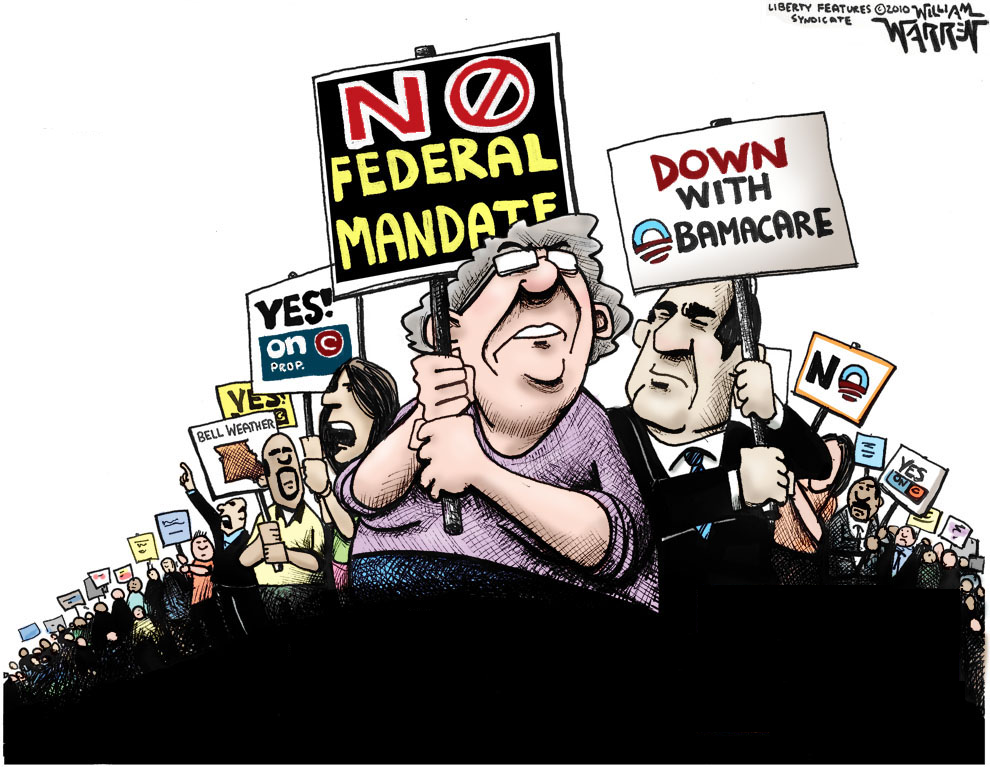By Natalia Castro
Donald Trump began his first press conference as President-elect by remaining true to one of the earliest promises of the Republican Party, he clarified that he would immediately repeal Obamacare.
Using the repeal and replace strategy that led the presidential campaign, Republicans in the House and Senate have voted on the congressional budget that will begin the process, but with the details of the repeal of the health care law being left to committees for review, it is still unclear what “repeal and replace” actually means.
Last week began the first major push for Republicans to remove Obama’s failed health law. With a majority in both the House and the Senate, Republicans successfully passed legislation on Concurrent Resolution 3 “Setting forth the congressional budget for the United States Government for fiscal year 2017 and setting forth the appropriate budgetary levels for fiscal years 2018 through 2026.”
President elect Trump is already praising the legislation, arguing that Republicans are helping the Democrats by repealing a law destined to harm American lives. As Trump stated in his Jan. 11 press conference, “We are going to take the problem off the shelves for them. We’re doing them a tremendous service by doing it. We could sit back and let them hang with it. We are doing the Democrats a great service.”
Trump advocated for an immediate repeal of the law combined with a simultaneous replacement for the law, creating urgency within Congress. But while Republicans claim that the first vote is something to celebrate, we do not actually know why; as none of the text of the legislation has been released.
And there is reason for skepticism in this repeal and replace system which will allow select committees to determine how much of Obamacare is truly worth replacing, when the answer should be all of it.
As Daniel Horowitz of The Conservative Review explains, the urgency to replace Obamacare ignores the fundamental reality that any regulation in the health market only stifles growth and increases costs to consumers. So far, Republican plans have not included repealing keep kids on their parents’ insurance until the age of 26 or minimal requirements for what must be covered by insurance.
Horwitz writes, “the problem is that… there are no signs that Republicans plan to include repeal of the insurance regulations in the package. In other words, premiums will not go down nor will we achieve solvency in the insurance market.”
Here, Horowitz has a point. Nowhere do Republican leaders say they are repealing the portion of Obamacare which requires insurance to cover all pre-existing conditions or keeping kids on their parents’ plans. For his part, President-elect Trump campaigned on keeping those provisions in place.
This leaves the public in the dark as to the extent in which Obamacare is actually being repealed. Rather than allowing the free market to moderate the system, critics like Horowitz fear old regulations will simply be replaced with new ones.
Republicans cannot replace Obamacare with more federal mandated insurance law, instead they need to empower the private sector.
The ideal Republican legislation would in the least repeal everything the H.R.3762 reconciliation measure that Congress worked on last year. That bill would have repealed key parts of Obamacare such as Medicaid expansion, premium subsidies, cost-sharing subsidies, the individual and employer mandates, reinsurance, risk corridors and risk-adjustment, and the many taxes and spending the health law includes.
That’s most of Obamacare, but to be fair, it’s not everything, as noted by the Conservative Review’s Horowitz.
This bill passed in both the House and the Senate, before President Obama struck it down with a veto. Now with President-elect Trump prepared to take office, Republicans must rejuvenate this legislation. But is only the first step to reforming the health care system.
Other to-do items include breaking up the state-by-state monopolies that disallow insurance from being sold across state lines, which Trump campaigned on.
Once the text of the resolution is released we will know if Republicans are serious about health care reform through the private sector, but until then we run the risk of yet another failed health law. Here, Republicans in Congress should be mindful to take their time to ensure they carefully repeal Obamacare without replacing it with similar federal mandates doomed to fail.
But so far, Republicans are off to a good start, let’s hope that this continues as we learn more about the details of the repeal.
Natalia Castro is a contributing editor at Americans for Limited Government.








